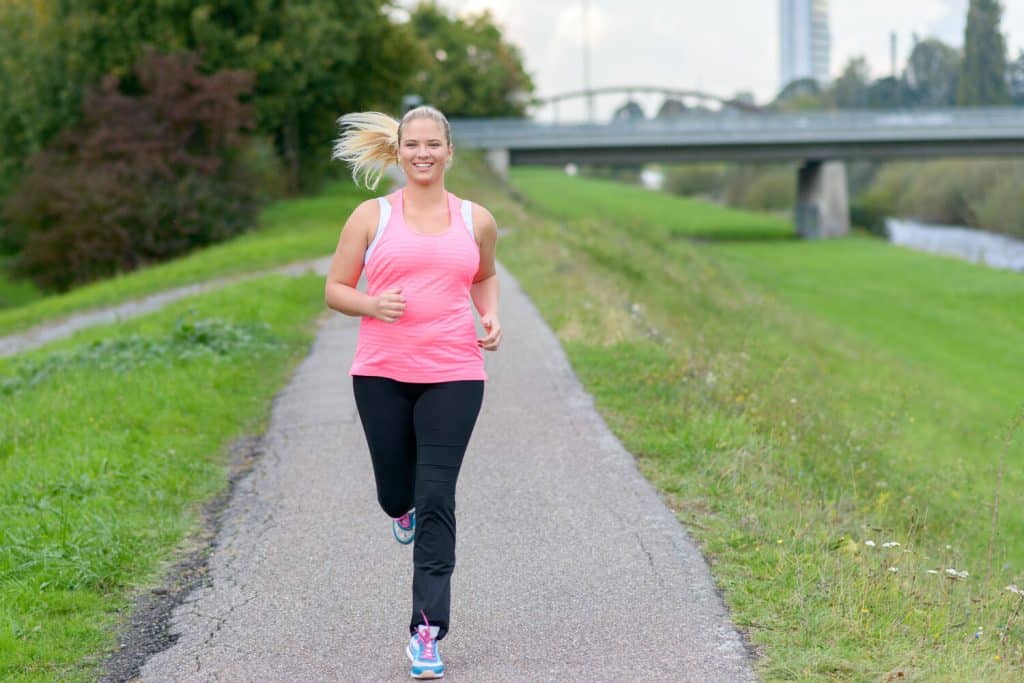I’m going to say something that may seem surprising coming from a nutritionist.
If I had to choose the top 2 things you can do for long-term health and disease prevention, they would be good sleep and smart exercise. Nutrition would have to come in 3rd place. Sorry nutrition.
My clients will be familiar with the fact that I am always emphasizing physical activity and smart exercise.
Why?
Well, let me count the ways…..
Exercise has so many, many benefits, it will make your head spin.
If you are in a hurry, you can just trust me on this one.
If you are interested in reading about some of the great and wonderful benefits of exercise, please read on.
But right here I have to insert a caution.

When I say “exercise”, I mean first and foremost being physically active. We all know “sitting is the new smoking” so just get up and move. We humans are designed to move!
Also, you do not have to be in a gym 6 days a week to get the benefits of “exercise”.
But certainly doing focused physical activities like hiking, running, swimming, strength training, and so on will give you all the benefits of physical activity, even if they are done in your backyard or living room or a field somewhere.
So please don’t take this to mean you have to make your local gym your second home.
And also, I have to point out that there are many people that are over-training and thereby over-stressing their bodies.
This can actually end up CAUSING health issues.
So I like to recommend Smart Exercise (a phrase I just made up right now).
This means the following:

-Get a lot of variety in your physical activity. doing the same thing every day is not your best bet. Your body will catch on to you, diminishing the return on your investment pretty rapidly and it can cause dysfunction. Think a routine like rotating hiking, strength training, pilates, swimming, core conditioning, hopping on a bike, weight-lifting, playing a little golf, high-intensity interval training, take a long walk, etc. KEEP YOUR BODY GUESSING!
-Enjoy your physical activity. If you aren’t having fun you probably are not doing it right. Always prioritize pleasure in your habits.
-Pay attention to your heart rate and heart rate variability. Over-training is a real thing. If your heart rate is generally rising rather than lowering and your heart rate variability is going down with more training, you are probably over-training. If you want the long-term benefits of exercise, you need to chill out a little.
-Stabilize and strengthen your core muscles to avoid injury. For some this may mean working with a good trainer. This is really important because if you get injured, you can’t work out.
So, assuming you are exercising in a smart way you can revel in all of the wonderful benefits of regular physical activity.
The Many & Varied Benefits of Exercise
Exercise prevents dementia and Alzheimer’s Disease
(for many people, this is enough to stop reading right here. THIS IS HUGE!)
I repeat.
Exercise prevents dementia and Alzheimer’s Disease!
Here are two examples:
- “For instance, in a study of 2492 older Germans, engagement in any additional physical activity on a regular basis was associated with a 20% risk reduction in terms of dementia onset over the next 4.5 years.” (1)
- “A study following over 1200 Swedish adults for 21 years found that engaging in leisure-time physical activities of moderate intensity for at least twice a week at midlife was associated with a 53% and 65% reduced chance of developing all-cause dementia and Alzheimer’s Disease, respectively, in old age, compared with less frequent activities” (1)

I am putting all the research stuff at the end of this post for those of you that want to read more about all the juicy studies.
Exercise improves your mood
Exercise has been shown in many studies to improve symptoms of depression.(2) And moderate exercise has been shown to reduce symptoms of anxiety.(2)
Exercise is really good for your immune system.
Here are just a few examples (read more at the end of this post)
- Exercise reduces stress hormones and other chemicals that can suppress immune system functioning and increase inflammatory activity (3)
- “Moderate activity on a daily or almost-daily basis seems to have a cumulative benefit for your immune system, improving its ability to fight off infection.” (3)
- Autoimmune risk rises with a more sedentary lifestyle.(4)
Exercise improves cardiovascular function
(but you knew that already)
In particular, exercise that gets your heart pumping. This can be your typical “cardio” workouts and it can also come from strength training and interval training without doing “cardio”. Even just taking a brisk walk can help improve your cardiovascular health!
Regular exercise increases your endurance, strengthens your heart muscle, increases capillaries allowing for more nutrient flow to your cells, and protects against heart rhythm disturbances.(5)
People who are less active have an increased risk for cardiovascular disease. In one study it was found that inactive middle-aged women (exercising less than 1 hour per week) experienced a 52% increase in all-cause mortality and a doubling of cardiovascular-related mortality compared with physically active women. (6)
Exercise will help you burn fat
In particular for weight loss, it is important to note that exercise will increase insulin sensitivity (7)(8) and leptin sensitivity,(8) and increases the body’s ability to pull fat out of fat stores.(7)
Exercise also can mimic estrogen in stimulating fat burning. Both estrogen and exercise are good for boosting fat burning.(9)
Exercise will boost gut function and microbiome health
Research shows that exercise will increase the bio-diversity of the microbiome and reduce inflammation in the gut.(10) And exercise has even been shown to reduce IBS symptoms (11) and incidence of Crohn’s disease.(12)

In the research there are many different kinds of “exercise” ranging from “regular physical activity” to “extreme exercise”. So we would have to get really into the nitty-gritty for each of the categories above to give specific information about each.
However, it is pretty clear that as long as you are exercising in a moderate way, it is almost completely all benefit (assuming you don’t get injured).
I don’t know about you, but for me, reading about the benefits to brain health was enough to get me going on a regular exercise routine.
The nice thing is you can start small and easy and you can always build on that. Do what you enjoy, push yourself but not too hard, and pay attention to your body. I think you will find you live a better life with exercise in it!
Read below for more detailed research on the benefits of exercise for Alzheimer’s/Dementia:
Cheng ST. Cognitive Reserve and the Prevention of Dementia: the Role of Physical and Cognitive Activities. Curr Psychiatry Rep. 2016;18(9):85. doi:10.1007/s11920-016-0721-2
- The two most significant modifiable risk factors for dementia are physical activity and stimulating cognitive activity
- Physical activity (especially aerobic exercise) is associated with less age-related gray and white matter loss in the brain, along with less neurotoxic factors
- Physical activity “preserves neuronal structural integrity and brain volume (hardware), cognitive activity strengthens the functioning and plasticity of neural circuits (software), thus supporting cognitive reserve in different ways.”
- “A study of 803 older adults residing in a suburban area of Japan found that those with self-reported leisure-time physical activity of at least 1 day per week had a 41 % reduction in the risk of developing AD (but not other types of dementia) over the next 12 years, compared with those who were less active.”
- Light physical activity is even beneficial for older adults – even in suboptimal amount and intensity have benefits
- Why does exercise prevent dementia and AD?
- Protects brain health and fuels neuroplasticity by reducing the likelihood of vascular diseases and improved cerebral perfusion (hypertension, strokes, atherosclerosis)
- Improved respiratory function
- Stimulates anti-inflammatory responses
- Downregulates oxidative stress
- Physical activities also have mental stipulation – they require hand-eye coordination and visuospatial memory – which relates to improvements on cognitive functioning
- “The benefit of physical activity on slowing age-related decline in gray matter is not limited to cognitively healthy adults but exists for those with MCI or dementia as well [65, 66]. Thus, it is never too late to increase physical activity.”
- In one randomized control trial, older adults who participated in exercise for 6 months showed an increased in gray matter volume in the prefrontal and cingulate cortex, compared to those without the intervention (1)
Sellami M, Gasmi M, Denham J, et al. Effects of Acute and Chronic Exercise on Immunological Parameters in the Elderly Aged: Can Physical Activity Counteract the Effects of Aging?. Front Immunol. 2018;9:2187. Published 2018 Oct 10. doi:10.3389/fimmu.2018.02187
- The deterioration of the immune system caused by aging is what causes changes to the innate and adaptive immunity for the elderly – called Immunosenescence
- This alters the function and phenotype of immune cells, which contributes to the loss of immune function and leads to several age-related diseases (including Alzheimer’s)
- At the same time as the rates of autoimmune and chronic diseases rose, so did the rate of sedentarism
- Exercise enhances immunity – so much so that exercise training may prevent disease through the “attenuation of Immunosenescence”
References
- Cheng ST. Cognitive Reserve and the Prevention of Dementia: the Role of Physical and Cognitive Activities. Curr Psychiatry Rep. 2016;18(9):85. doi:10.1007/s11920-016-0721-2
- Elizabeth Aylett,1 Nicola Small,2 and Peter Bower2. Exercise in the treatment of clinical anxiety in general practice – a systematic review and meta-analysis. BMC Health Serv Res. 2018; 18: 559.
- Sellami M, Gasmi M, Denham J, et al. Effects of Acute and Chronic Exercise on Immunological Parameters in the Elderly Aged: Can Physical Activity Counteract the Effects of Aging?. Front Immunol. 2018;9:2187. Published 2018 Oct 10. doi:10.3389/fimmu.2018.02187
- Warburton DER, Nicol CW, Bredin SSD. Health benefits of physical activity: the evidence. CMAJ. 2006;174(6):801-809.
- Christian K. Roberts,1,* Andrea L. Hevener,2 and R. James Barnard3. Metabolic Syndrome and Insulin Resistance: Underlying Causes and Modification by Exercise Training. Compr Physiol. 2013 Jan; 3
- Victoria J. Vieira-Potter,1 Terese M. Zidon,1 and Jaume Padilla1,2,3. Exercise (and Estrogen) Make Fat Cells “Fit”. Exerc Sport Sci Rev. 2015 Jul; 43(3): 172–178.
- Codella R, Luzi L, Terruzzi I. Exercise has the guts: How physical activity may positively modulate gut microbiota in chronic and immune-based diseases. Digestive and Liver Disease. 2018;50(4):331-341. doi:10.1016/j.dld.2017.11.016
- Johannesson E1, Simrén M, Strid H, Bajor A, Sadik R. Physical activity improves symptoms in irritable bowel syndrome: a randomized controlled trial. Am J Gastroenterol. 2011 May;106(5):915-22. doi: 10.1038/ajg.2010.480. Epub 2011 Jan 4.
- Hamed Khalili, attending physician,1 Ashwin N Ananthakrishnan, attending physician, assistant professor,1 Gauree G Konijeti, clinical and research fellow,1 Xiaomei Liao, research scientist,2 Leslie M Higuchi, attending physician,3 Charles S Fuchs, attending physician, professor,5,6 Donna Spiegelman, professor,2 James M Richter, attending physician, associate professor,1 Joshua R Korzenik, attending physician, assistant professor,4 and Andrew T Chan, attending physician, associate professor1,6. Physical activity and risk of inflammatory bowel disease: prospective study from the Nurses’ Health Study cohorts. BMJ. 2013; 347: f6633, Published online 2013 Nov 14. doi: 10.1136/bmj.f6633.
